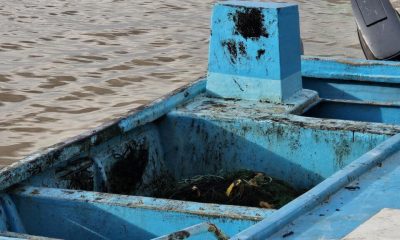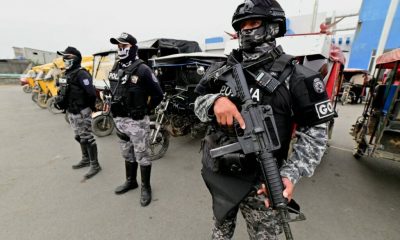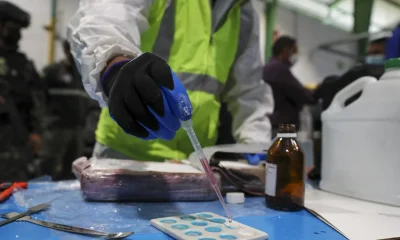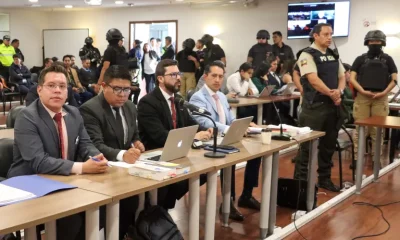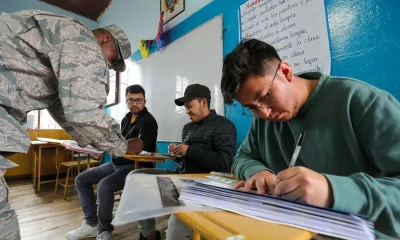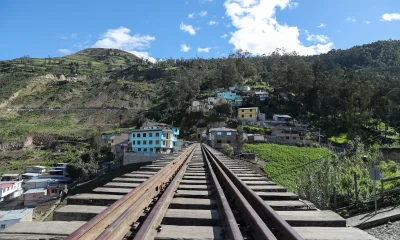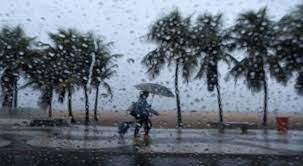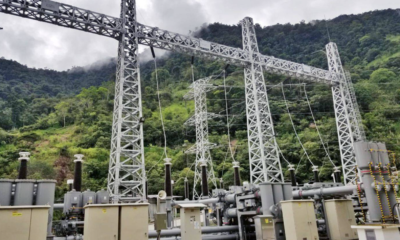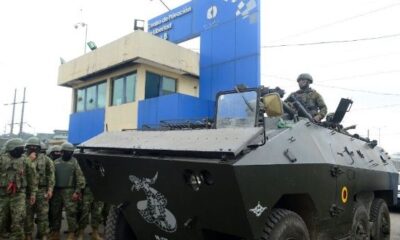International
H: the heroin derivative ravaging Ecuador’s poor
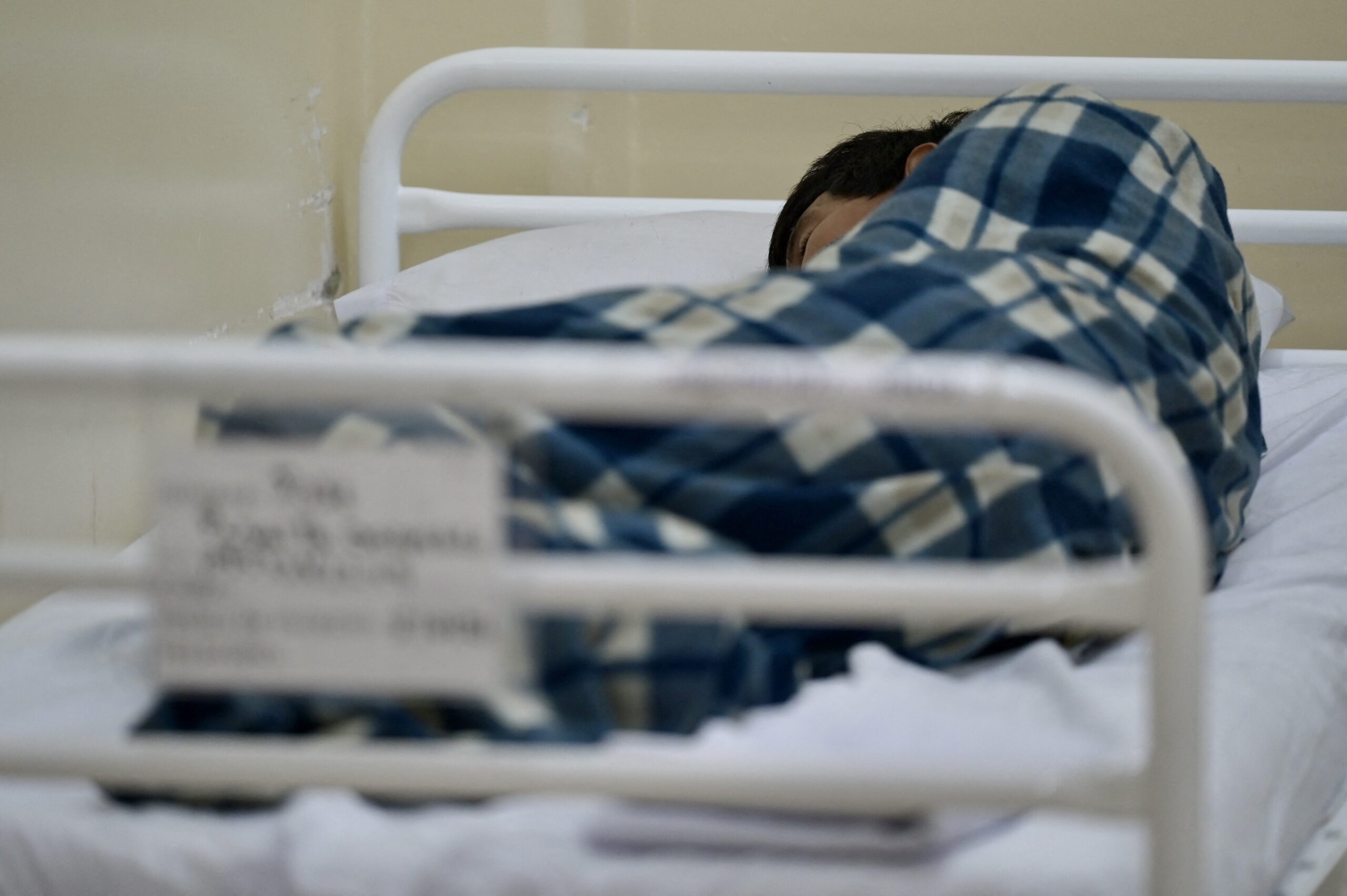
January 20 | By AFP | Karla Pesantes |
Shaking and delirious, Rina ambles half-dressed beside a dump in Ecuador’s port city of Guayaquil.
She is under the psychotropic effects of “H,” a cheap and addictive drug that is ravaging the poorest sectors of Ecuadoran society.
The scene was captured on video on New Year’s Eve and relayed to the municipal health center, which came to her aid.
“When I consume (the drug) I hear voices,” the 24-year-old, who is using a pseudonym, told AFP.
For the second time in less than a year she is following a drug rehabilitation program.
In her desperation, Rina stole and even worked as a prostitute to buy H, a heroin-based white powder that can be snorted or smoked and is sold for $1 a gram.
It is much cheaper and much more toxic than cocaine, which goes for $3 to $5.
H is cut with all sorts of toxic materials that can harm humans.
“We have found lime, cement, ether, rat poison and even ketamine, an analgesic used on horses,” in the white powder, said psychiatrist Julieta Sagnay, from the Guayaquil-based Neuroscience Institute, an NGO that supports drug addicts.
Guayaquil, a city of almost three million people, has become a hub of drug trafficking and addiction.
Officials say 162 kilograms of H were seized in 2022.
Sagnay, an expert with more than 30 years of experience treating addicts, says the number of patients she treats for H use is increasing every day.
And their physical condition deteriorates quicker than other patients.
In just six months, H addicts are constantly moving their legs, scratching, and not sleeping or eating.
Withdrawal symptoms are so severe, says Sagnay, that it is unbearable without at least eight days of pharmaceutical treatment.
‘They beat me’
There are three public clinics in Guayaquil for addicts and there are more than 30 private ones but they can cost up to $700 a month in a country where the minimum wage is just $450.
Some addicts turn to back-alley detox centers.
“They beat me, they poured a bucket of cold water on me and we ate chicken heads every day,” said Hugo Mora, who was treated four years ago in a dirty, dark, illegal center with no windows.
It only cost $150 but it was a failure.
After trying out two such clinics, the 24-year-old street vendor spent a week in a municipal hospital, where he was treated in a large room with more than a dozen beds.
The hospital takes in up to 150 daily patients, 90 percent of whom are suffering from an H addiction.
The InSight Crime think tank says H arrived in Guayaquil in 2011, pushed by Colombian cartels hoping to develop the heroin market.
But the H powder contains less than three percent heroin, according to forensic psychologist and retired police officer Segundo Romero.
“As there is so little pure drug, the addict needs to consume more and buy more,” said the forensic psychologist.
He told a story about meeting addicts in prison whose faces were covered in dust.
“As they no longer had any drugs, they had scratched the walls and put white paint in their nostrils,” he said.
With just one gram of heroin, a dealer can make 40 grams of H, with the mix of ingredients provoking psychotic symptoms and hallucinations.
In Cerro las Cabras, the drug supermarket in Duran, a town opposite Guayaquil along the Guayas river, H sales bring in $1 million a month, according to official estimates.
International
Spain’s irregular migrant population rises to 840,000, study finds

The number of migrants living in Spain without legal residency status continues to rise and has reached 840,000 people, with 91% originating from the Americas, particularly Colombia, Peru and Honduras, according to a report by the Spanish think tank Funcas (Foundation of the Savings Banks).
An estimated 17.2% of the non-EU foreign population living in Spain is in an irregular administrative situation. The estimate is based on the gap between the number of foreign residents effectively living in Spain, according to the National Statistics Institute (INE), and those who hold a residence permit, benefit from international protection, or are in the process of obtaining it.
The data, as of January 1, 2025, point to a notable and sustained increase in irregular migration since 2017, when the estimated figure stood at around 107,000 people, representing 4.2% of the non-EU population residing in Spain.
By origin, migrants from the American continent stand out, totaling around 760,000 people, or 91% of all irregular migrants. Colombians account for nearly 290,000, followed by Peruvians with almost 110,000, and Hondurans with about 90,000. Migrants from Africa (50,000), Asia (15,000) and Europe (14,000) trail far behind.
The figures predate Spain’s latest immigration regulation reform, which came into force in May 2025 and introduces measures to ease access to legal status through residency ties. According to Funcas, the reform would, in principle, tend to reduce the number of migrants in an irregular situation.
International
Historic snowstorm paralyzes Toronto after 60 centimeters of snow

Toronto, Canada’s largest city and the fourth most populous in North America, was largely paralyzed on Monday after a historic snowstorm dumped up to 60 centimeters of snow and sent temperatures plunging to -15 degrees Celsius, authorities said.
Late Sunday, as the scale of the snowfall became clear, city officials declared a climate emergency, triggering extraordinary measures including parking bans on several major streets to facilitate snow removal operations.
Toronto’s public transit authority reported that while some buses remain immobilized, subway and streetcar services are operating with relative normality, though localized disruptions may occur.
A similar situation is affecting the city’s commuter rail network, which remains operational but is experiencing significant delays on its main routes due to the severe weather conditions.
International
Venezuela frees at least 80 political prisoners, NGO says
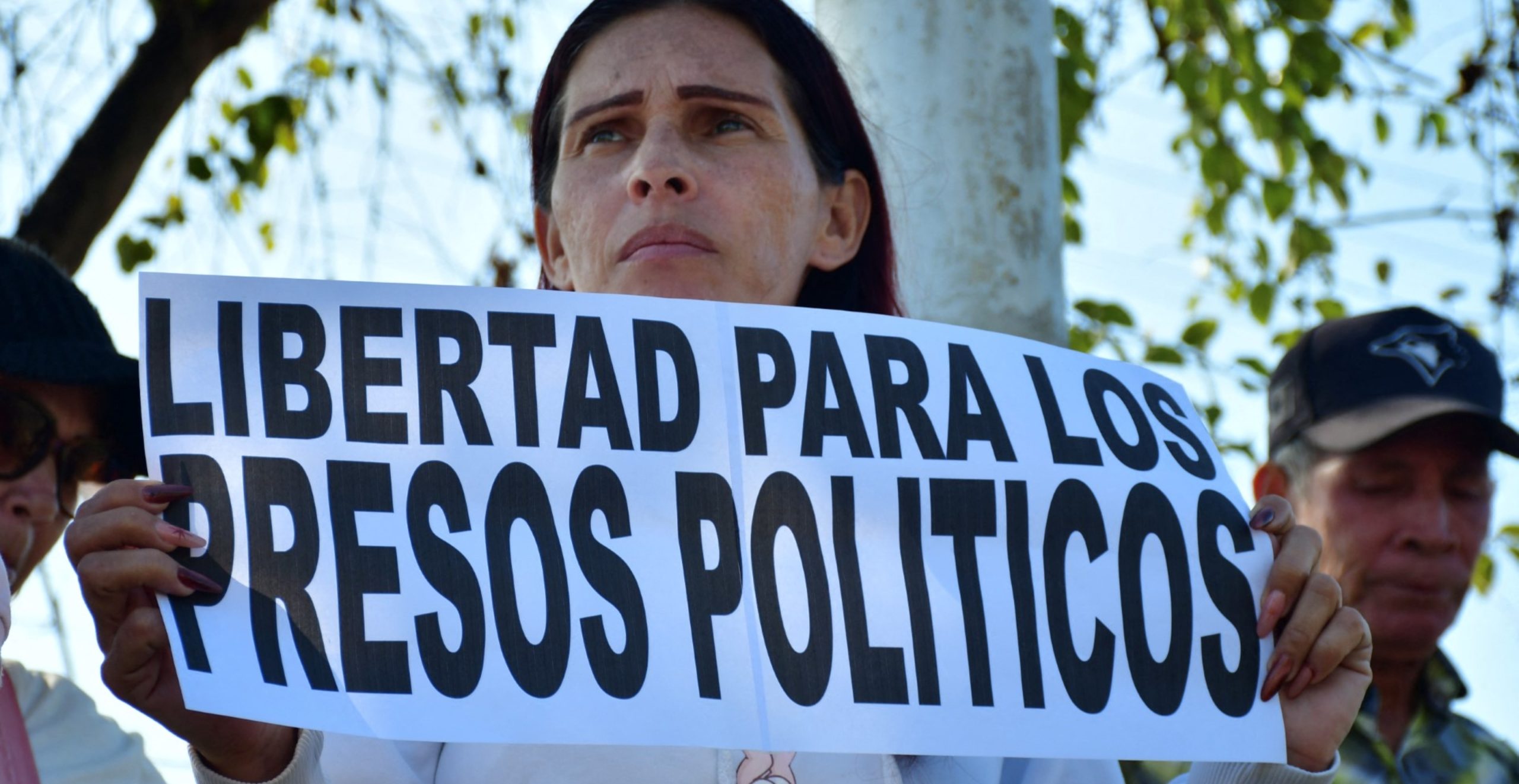
At least 80 political prisoners were released on Sunday across Venezuela, human rights group Foro Penal reported, as the broader process of detainee releases continues at a slow pace under the interim government.
Foro Penal’s director, Alfredo Romero, wrote on social media platform X that verified releases took place nationwide and that the figure could rise as more confirmations are completed.
Attorney Gonzalo Himiob, also from Foro Penal, said the excarcelations occurred during the early hours of the day and emphasized that the number is not yet final pending further verification.
The releases are part of a series of steps announced by Venezuela’s interim leader, Delcy Rodríguez, who took power after the capture of former President Nicolás Maduro in a U.S. military operation on Jan. 3, 2026. Rodríguez has pledged a significant number of liberations but has been criticized by opposition groups and rights organizations for the slow and nontransparent nature of the process.
So far, the Venezuelan government reports that 626 detainees have been freed since December, though independent counts by human rights groups suggest the number of actual political prisoner releases is lower and that many remain behind bars.
Families of those still detained have maintained vigils outside prisons, hopeful for further releases even as broader concerns about political imprisonment and due process persist.
-

 International5 days ago
International5 days agoMexican influencer “La Nicholette” kidnapped in exclusive area of Culiacán
-

 International4 days ago
International4 days agoTrump to invite Venezuela’s interim president Delcy Rodríguez to Washington
-

 Central America4 days ago
Central America4 days agoMazatenango Carnival cancelled amid State of Siege in Guatemala
-

 International5 days ago
International5 days agoMajor winter storm to blanket U.S. and Canada with snow, ice and arctic cold
-

 International4 days ago
International4 days agoMarkets rise as Trump halts Europe tariffs and floats Greenland agreement framework
-

 International5 days ago
International5 days agoColombia slams Ecuador’s 30% tariff as ‘economic aggression’
-

 International5 days ago
International5 days agoTrump announces preliminary NATO agreement on Greenland, suspends tariffs on Europe
-

 International4 days ago
International4 days agoVenezuela’s interim president predicts 37% increase in revenues for 2026
-

 Internacionales3 days ago
Internacionales3 days agoMajor winter storm threatens “catastrophic” ice and snow across much of the U.S.
-

 International2 days ago
International2 days agoTrump-Era Defense Plan Prioritizes Border Security and Scales Back Global Commitments
-

 International4 days ago
International4 days agoFour minors killed in deadly clash between FARC dissidents in Colombia’s Amazon
-

 International4 days ago
International4 days agoJapan reopens Kashiwazaki-Kariwa Plant despite public concerns
-

 Central America3 days ago
Central America3 days agoGuatemala’s president rules out negotiations with inmates after prison riots
-

 International3 days ago
International3 days agoGuatemala considers sending high-risk gang members to military prisons
-

 International2 days ago
International2 days agoBogotá and Quito Seek Dialogue After Tariffs and Power Cut Escalate Tensions
-

 International5 days ago
International5 days agoJosé Jerí claims destabilization attempt after videos of secretive meetings surface
-

 International1 day ago
International1 day agoDelcy Rodríguez seeks political agreements after Maduro’s ouster
-

 International3 days ago
International3 days agoRights group says over 5,000 killed in Iran protests, mostly civilians
-

 International1 day ago
International1 day agoFederal immigration agents kill man in Minneapolis, sparking protests and outrage
-

 Central America4 hours ago
Central America4 hours agoGuatemala seizes over a ton of cocaine hidden in flour at Pacific port
-

 International4 hours ago
International4 hours agoFrance debates ban on social media for children under 15
-

 International4 hours ago
International4 hours agoEU launches new probe into X over AI-generated fake nude images
-

 International4 hours ago
International4 hours agoVenezuela frees at least 80 political prisoners, NGO says
-

 International3 hours ago
International3 hours agoSpain’s irregular migrant population rises to 840,000, study finds
-

 International4 hours ago
International4 hours agoSevere winter storm grips U.S., leaves multiple dead as extreme cold persists
-

 International3 hours ago
International3 hours agoHistoric snowstorm paralyzes Toronto after 60 centimeters of snow
-

 International4 hours ago
International4 hours agoRights group says nearly 6,000 killed in Iran protest crackdown

























